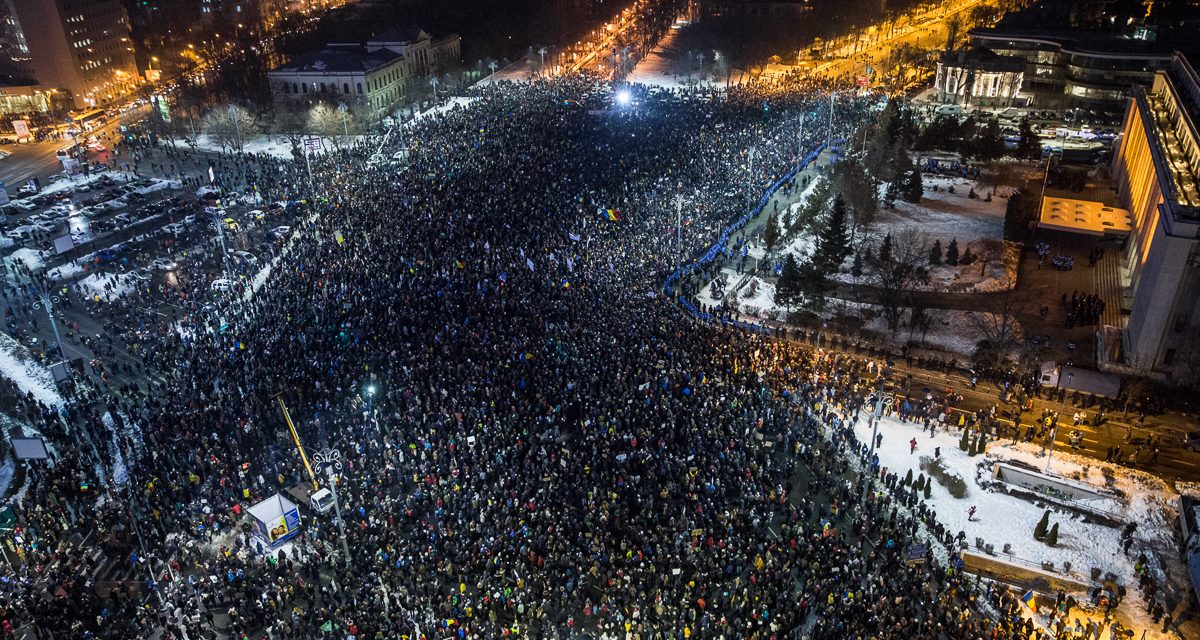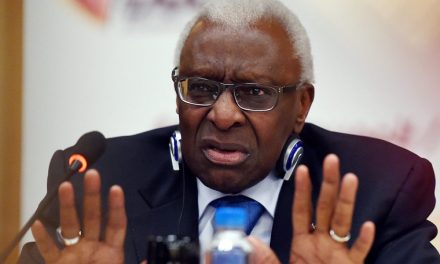Update
22 February 2017
Romanian parliament decided yesterday to shelve the controversial decree which sought to make offences involving less than $47,000 not punishable with a jail term.
The decree, if approved, would have enabled the ruling party leader Liviu Dragnea, who is facing corruption charges, to contest the next general election to become the Prime Minister.
Even after the decree’s withdrawal, thousands of protesters continued to demonstrate in the city, demanding the government to quit. Supporters of the coalition government also gathered in cities, outside the capital, waving national flag and dancing to nationalist music. They accused Klaus Iohannis of plotting against a lawfully elected government.
3 February 2017
Strangest thing is happening in Romania. On Tuesday, 31 January 2017, the cabinet adopted an emergency decree that officially decriminalises corruption involving financial damage less than 200,000 lei ($47,800).
European Commission President Jean-Claude Juncker and First Vice-President Frans Timmermans, along with the US, Canada, Germany, France, the Netherlands and Belgium have condemned the decree.
The ruling Social Democratic Party’s leader, Liviu Dragnea, is among those with a corruption conviction, will benefit from this decree. Dragnea, has a two-year suspended prison sentence for vote rigging. His conviction involves a sum of 24,000 euros, or about $25,800. The conviction bars him from becoming a prime minister. He may have done good things for Romania in the past but he should learn to do good while being honest.
Business environment minister Florin Jianu resigned as a mark of protest. President Klaus Iohannis announced he would take the decree to the constitutional court.
Why was the decree not taken up in the parliament? Why was it adopted as an emergency decree? Why was it urgent?
Some 100,000 people, gathered in the capital to protest the decree. In other major cities, another 80,000 gathered to express their displeasure. But, the prime minister, Sorin Grindeanu, said the government would not repeal the decree. Justice minister, Florin Iordache, has come under heavy fire for publishing the decree.
Romania joined the European Union in 2007, along with Bulgaria. Romania’s economy is one of the best performing in the EU with 5 per cent growth expected in 2016 and the overall economy increasing by 25 per cent in the last five years. Its debt and deficit are comfortably within EU Treaty requirements. It is said that France has more Romanian doctors than Romania.
Romania ranked 57 out of 176 countries, along with Jordan and Hungary in the Corruption Perception index of Transparency International. It ranks above Italy, Saudi Arabia, South Africa, China etc.
The above shows a good record of Romania in the recent past. But why does the government want to ruin that good record? People have come out to oppose the decree and have given a clear signal to the government. If the government does not pay heed to this public outcry, it will fail.
Update
6 February 2017
After five consecutive days of demonstrations by the people, the Sorin Grindeanu government announced the withdrawal of the emergency decree passed last Tuesday. Some 300,000 protesters were on the street demanding the withdrawal of the decree and the resignation of the prime minister and the government.
The government still wants to free about 2,500 people from prison serving sentences of less than five years, with the approval of the parliament. There are 2,000 people convicted for abuse of power between 2014 and 2016. Those convicted or awaiting trial include a serving prime minister, five ministers, 16 lawmakers and five senators.
The government said that the changes were needed to reduce prison overcrowding and align certain laws with the constitution. People think that this was only a ruse to set free some crooked politicians in the ruling coalition.
The EU had warned Romania not to damage the governments progress against corruption.
Update
10 February 2017
Florin Iordache, justice minister, was one of those responsible for the emergency ordinance which condoned certain corruption offences where sums of less than $47,500 were involved. The ordinance was withdrawn after heavy street protests from the public. The public protests continued even after the repeal of the ordinance. “I have decided to offer my resignation,” Iordache told reporters on Thursday.
The prime minister, Sorin Grindeanu would have sacked Iordache if he had not resigned. The prime minister’s view is that the protests arose because the emergency ordinance was not fully explained to the public. He hopes to see the passage of the bill through the parliament after full debate. People understand the ordinance well. Any amount of window-dressing to the bill would not make any difference. The reason given by the government that the prisons are over-crowded is ridiculous.
Calin Tariceanu, president of the Senate and leader of the Alliance of Liberals and Democrats, told BBC, “I regret having to say this, but the judiciary in Romania is not independent, and this is the clear issue which has to be addressed in the future.” “The DNA and the intelligence services are now perceived as institutions which are not respecting the legal framework, are corrupt themselves, and are used as important leverage in the political fight in Romania,” he told the BBC.
President Klaus Iohannis last week warned the parliament that the resignation of the minister would not be enough. Iohannis vehemently criticised the government and actively supported the protesters. President’s position in Romania is largely ceremonial and does not have much clout in the parliament. He is trying to cash in on the present turmoil to improve his political support base.
Laura Codruta Kovesi, 43-year-old chief prosecutor at Romania’s Anti-Corruption Directorate, (DNA), is seen as the crusader against corruption. She has become a star due to success of the DNA under her leadership. She had investigated a prime minister, former government ministers, media moguls, judges and prosecutors.













